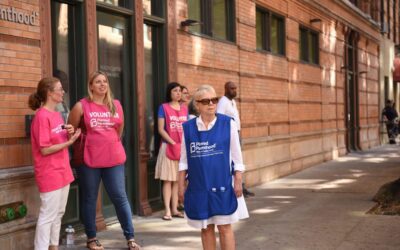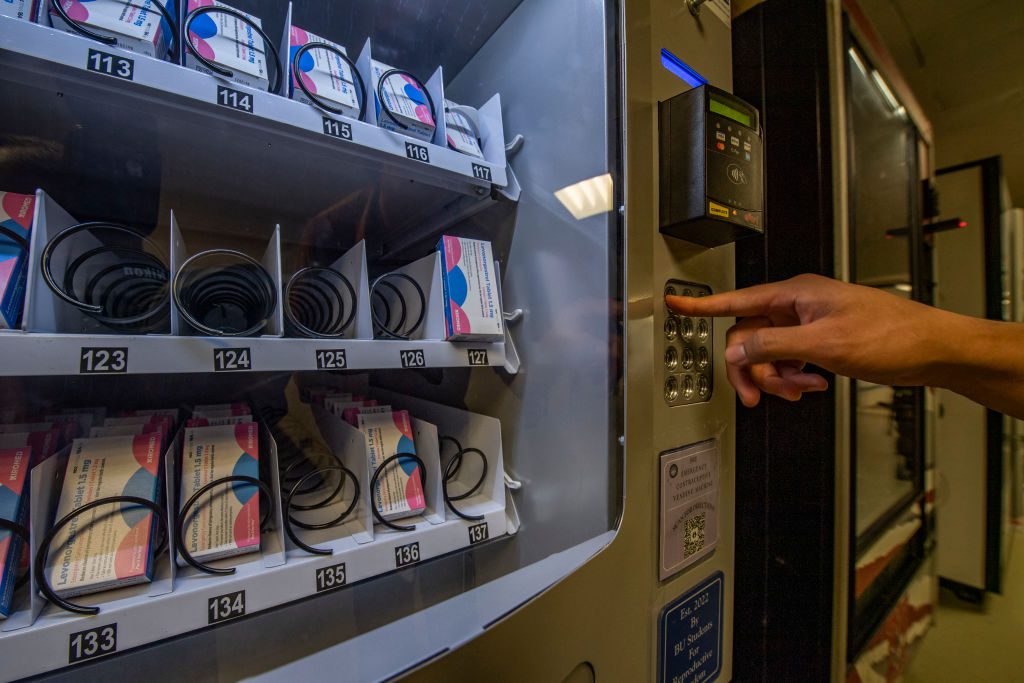
A person demonstrates how to purchase a carton out of the "morning-after" pill, Plan-B, vending machine. (Photo by JOSEPH PREZIOSO/AFP via Getty Images)
Vending machines have become a new way for students to easily access emergency contraception at an affordable price. Here’s the story of students at one Pennsylvania university who are trying to get one on their campus.
Need Plan B? Just hit B6.
Students at Temple University in Philadelphia might soon be able to access the emergency contraception 24/7, as on-campus advocates with Planned Parenthood Generation Action work to get a Plan B vending machine installed on campus.
Plan B prevents pregnancy by delaying or preventing ovulation. It does not end a pregnancy, according to the Mayo Clinic. It needs to be taken within 72 hours of having unprotected sex, so accessibility—both in a financial and in a practical sense—is crucial.
That accessibility is exactly what the vending machine will provide, said Alexis Caines, a sophomore who is vice president of Planned Parenthood Generation Action at Temple University.
Caines said the on-campus organization has already raised $2,500 for the machine and has 400 units of Plan B, provided free of charge by the company Julie. The hope is to put the vending machine in a section of the library that is open 24 hours a day, seven days a week. Students would be able to get Plan B for free at any time, Caines said.
“It’s easy to get and it’s free,” Caines said. “Just go over and press a few buttons. It’ll come right out. You can go back to your life. There is too much angst and worry around the process [of getting it]. This is a situation where there is already angst and worry. We want to make it a little bit easier and take away some of that angst and worry. We want everyone to feel comfortable and supported on campus.”
Plan B vending machines on campus
The first known emergency contraception vending machine in the US was installed at Shippensburg University in Cumberland County in 2012, according to the American Society for Emergency Contraception.
Currently, more than 30 colleges and universities in the US have a Plan B vending machine on campus. That includes three schools in Pennsylvania — Shippensburg, Carnegie Mellon University, and the University of Pennsylvania.
The movement for these machines has been gaining momentum in the wake of the US Supreme Court’s June 2022 decision to overturn Roe v. Wade, which ended the constitutional right to an abortion. Many worry the decision now puts access to contraceptives in jeopardy—particularly after the Court’s three progressive justices suggested in their dissenting opinion that it’s on the conservative majority’s agenda.
Democrats in Pennsylvania have fought to protect access to birth control. In June, the state House of Representatives passed a bill that would both protect and expand access to birth control, including emergency contraceptives. The bill would also protect and expand access to FDA-approved prescription and over-the-counter drugs and voluntary adult sterilization surgeries through insurance companies, Medicaid, and CHIP without out-of-pocket costs.
The bill faces an uphill battle in the Republican-controlled state Senate, however.
At the federal level, Democratic lawmakers have also tried to protect birth control access. But Senate Republicans recently blocked a bill that would have guaranteed access to birth control under federal law.
Specifically, the bill would have cemented the right for Americans to obtain and use birth control without government interference. It would have also protected the right of health care providers to distribute information about contraception and provide it to patients, and ensured that patients had a right to access condoms, birth control pills, intrauterine devices (IUDs), vasectomies, and more.
Why put a Plan B vending machine at Temple?
If you are a student at Temple University, there are currently two options to get Plan B, said Rika Poscover, a junior and president of Planned Parenthood Generation Action.
“You can either go to CVS where it is $50 and you have to press a button that alerts the whole store that you need the family planning case unlocked, and then you have to wait for someone to come unlock it and give it to you,” Poscover said. “Or you could go to Student Health Services and fill out a form and pay based on a sliding scale. Both options are awkward, not very discreet, and might deter people.”
Particularly when the clock is ticking.
The vending machine would provide discreet accessibility for all students and not cost them a penny, Poscover said. And it’s something the students want.
Poscover said a general interest survey was sent out at the beginning of the year, asking students if they believed such a vending machine should be installed on campus. It got over 300 responses, with 99% of those responses in favor.
“We are excited about the benefits this is going to provide to not only the students, but the university so that they can show that they stand with their female students, especially during these times when our reproductive rights are being stripped away,” Poscover said.
Support Our Cause
Thank you for taking the time to read our work. Before you go, we hope you'll consider supporting our values-driven journalism, which has always strived to make clear what's really at stake for Pennsylvanians and our future.
Since day one, our goal here at The Keystone has always been to empower people across the commonwealth with fact-based news and information. We believe that when people are armed with knowledge about what's happening in their local, state, and federal governments—including who is working on their behalf and who is actively trying to block efforts aimed at improving the daily lives of Pennsylvania families—they will be inspired to become civically engaged.

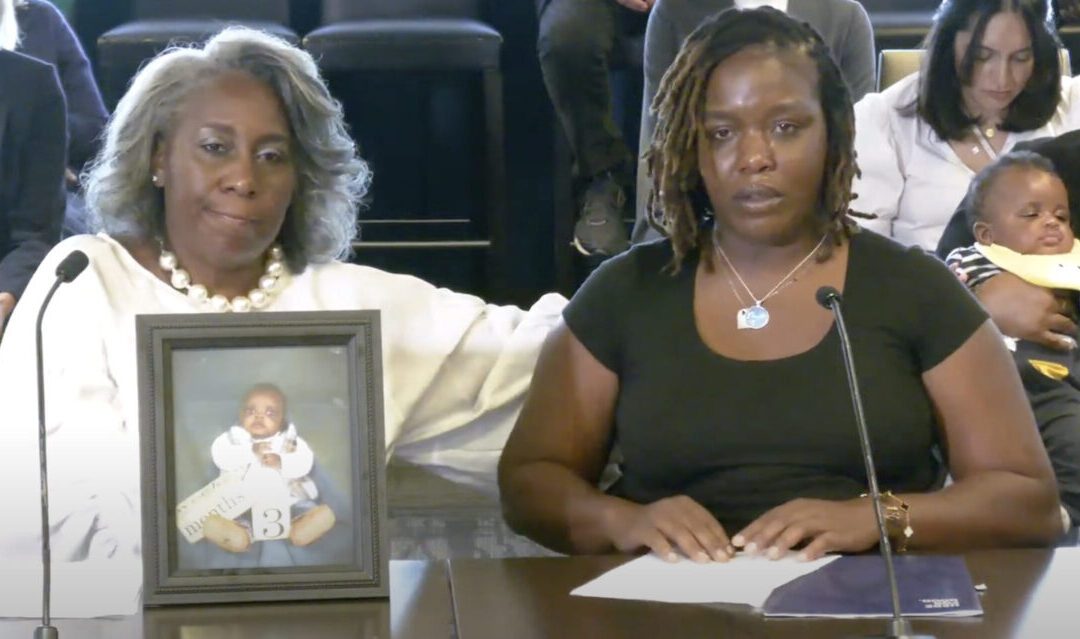
Pennsylvania’s maternal and infant mortality crisis through one mother’s loss
Pennsylvania’s growing maternal and infant mortality crisis is blamed in part on maternity care deserts and stigmas around care. This is one woman’s...
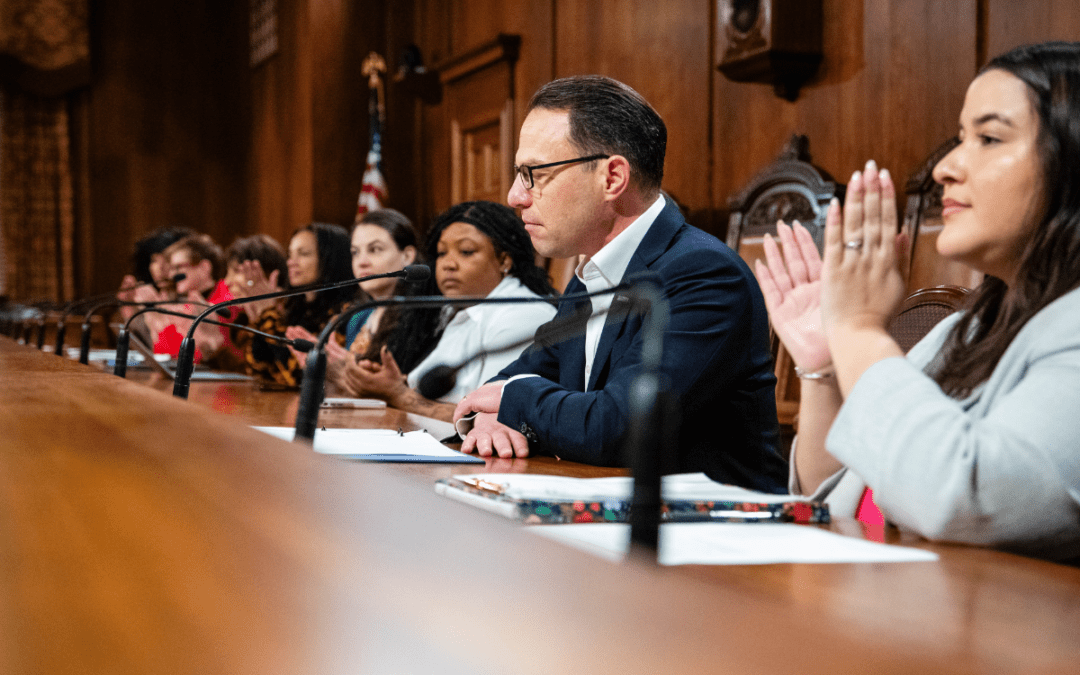
Gov. Shapiro joins lawsuit against against Trump administration over defunding of Planned Parenthood
The suit centers on a provision of the recently-passed mega bill , which enacts many of President Donald Trump’s domestic policy priorities. Gov....

The scary reality of losing Medicaid and health care options for one Pennsylvania woman
In the wake of Trump’s ‘One Big Beautiful Bill,’ thousands of Pennsylvanians are waking up to a new reality: the loss of Medicaid coverage, and the...
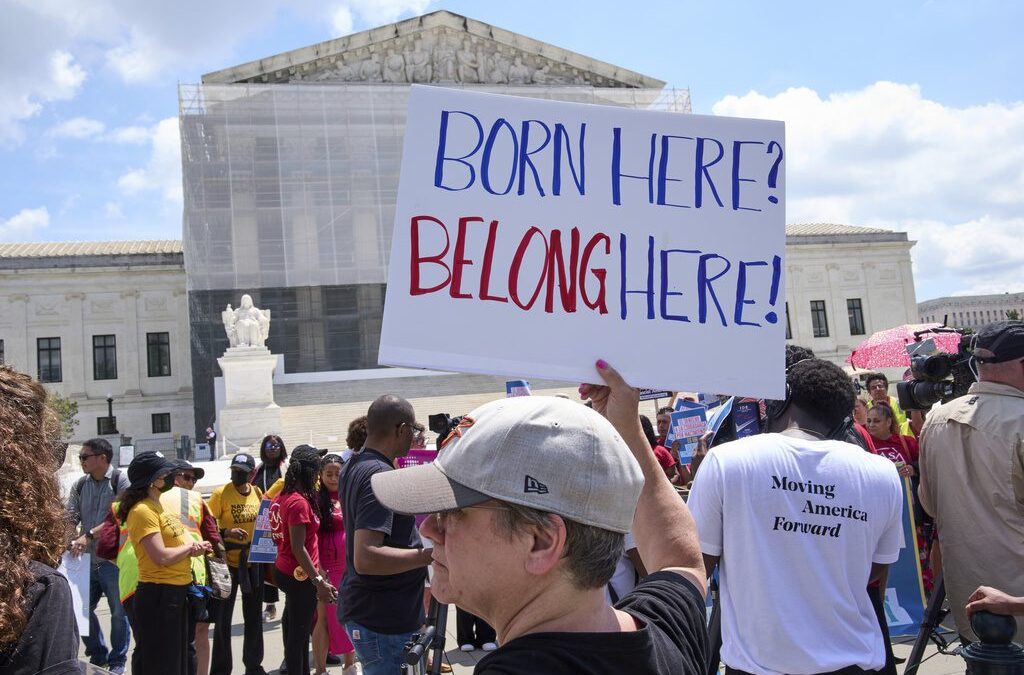
Supreme Court limits nationwide injunctions, but fate of Trump birthright citizenship order unclear
WASHINGTON (AP) — A divided Supreme Court on Friday ruled that individual judges lack the authority to grant nationwide injunctions, but the...

Contraception is health care: Pennsylvania House passes bill to expand birth control access
With employer-provided insurance no longer required to cover birth control, many in Pennsylvania are struggling to pay for necessary medical care....





